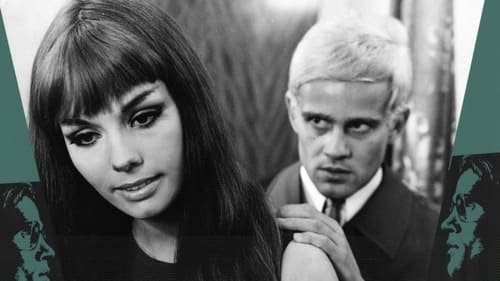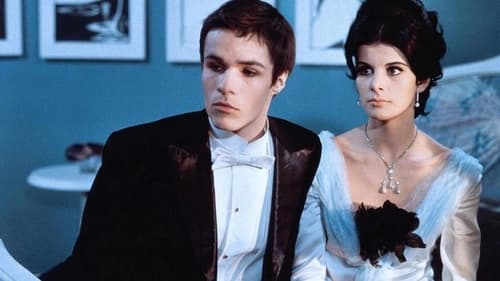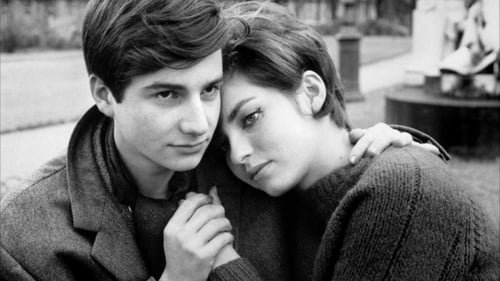Wolf Wirth
Рождение : 1929-07-30, Nuremberg, Bavaria, Germany

Director of Photography
Potato Fritz (Hardy Kruger) and his friends have moved from Germany to the American Wild West, settling eventually in the Rockies. They are besieged by what appear to them to be hostile Native Americans. Before too long, it becomes clear that the hostiles are in fact a gang of gold thieves. This movie is notable among German-made Westerns for its use of authentic period costumes and firearms.

Director of Photography

Director of Photography
Pepe Notnagel (who inexplicably had his name changed from the first movie's Nietnagel) and his classmates scheme to get around doing any actual school work by cheating or sending their teachers to the sanatorium. A Swiss documentary film maker disguises himself as his brother in law, who got a position as an exchange teacher, to aid his project of making a movie about the current youth.

Director of Photography
People from all over the world spend their summer holidays at the Black Sea. German Walter and his girlfriend Gisela check in at the hotel as spouses. Walter uses the passport of his wife. The police find the body of a young woman washes up by the waves. Inspector Damyanov begins an investigation. Walter is not under suspicion, but he is ill at ease. It is because of his wife passport? Ex-Nazi officer Kunze has his own little secret and causes for worry. Dutch musician Jan has something on his conscience, too, after a little love with a Bulgarian girl. Having penetrated the unsavory secrets of all those people, Damyanov leads them to the conviction that it is difficult to live a life of deception.

Director of Photography

Director of Photography
A well-off couple adopt a 16-year-old boy from an orphanage in West Berlin, but their attempts to help him assimilate into his new surroundings fail. The repressive tolerance of the well-educated adoptive parents is just too much for the mischievous young boy: he shoots the father.

Director of Photography
The submissive assistant of an abnormal jeweler becomes the victim of a doppelganger who plans the perfect crime.

Director of Photography
T. finds a letter. Instead of just dropping it in a mailbox, he decides, conscientious as he is, to deliver it personally. He wanders the entire world, discovers astounding forms of existence, but cannot be hindered from his duty and keeps looking until he finally finds the address. There, he finds out that he has delivered his own judgment.

Director of Photography
Short film about car racing.

Director of Photography

Director of Photography
This drama is taken from Thomas Mann's 1903 semi-autobiographical novel. Tonio (Jean Claude Brialy) is an aspiring writer and the son of a rigid aristocratic father and a music-loving mother. Wandering throughout Germany and Italy to "find himself," Tonio frequently remembers his childhood experiences in a series of flashbacks. The highlight of the film is the expert lensing by cinematographer Wolf Wirth. Erika Mann, the daughter of the late poet and author, collaborated with Ennio Flaiano on the screenplay.

Director of Photography
Allegory of a man who leads the people to destruction and then is reborn to recommence the cycle.

Allegory of a man who leads the people to destruction and then is reborn to recommence the cycle.

Director of Photography
France 1944: American pilot Philip Sturgess is shot down but found by a resistance group. In the neighborhood Sturgess meets another American and shortly thereafter the British Major Barton, called “Reiher”. He claims to have fled a German prison camp. Shortly before leaving for Spain to escape the Nazis, Sturgess discovers that Barton has written a letter to Germany. This confirms the suspicion that he could be a German spy…

Director of Photography
Confusion results when a young man walking through a park joins in a game of tennis.

Director of Photography
Kristl was a member of the prestigious Zagreb Studio of Animation and his early works as painter and filmmaker had brought him instant acclaim and instant censorship. He fled Croatia and lived in Germany; he died there in 2004. Poor People, a “collective scream” of Cold War fear, was produced just after he left his country.

Kristl was a member of the prestigious Zagreb Studio of Animation and his early works as painter and filmmaker had brought him instant acclaim and instant censorship. He fled Croatia and lived in Germany; he died there in 2004. Poor People, a “collective scream” of Cold War fear, was produced just after he left his country.

Director of Photography
A mother wants to buy a bike for her son, but she doesn't have enough money.

Director of Photography
Антуан взрослеет, и уже не тот бунтарь, каким он был раньше. Его любви к Колетт посвящается это психологическое исследование юности.

Director of Photography
A young electrical engineer, engaged to his boss's daughter and on the way to a secure existence, breaks out of his usual life when he meets a childhood friend.

Director of Photography
Short film about labor relations.

Director of Photography
In his experimental short film "Brutalität in Stein" (Brutality in Stone), Alexander Kluge demonstrates how Nazi architecture used dimensions of inhuman and super-human scale to bolster the regime's politics of the same kind. Shots of huge neo-classical architectural structures from the Nazi period are confronted with equally anti-human national-socialist language as a voice-over.

Director of Photography
Documentary about construction work.

Director of Photography
Fictional film with documentary elements about a jazz musician in Berlin.

Director of Photography

Director of Photography
Detten Schleiermacher did not start making films until late in life. He was actually a typographer. With “Trab Trab” he made an impish attempt to create a synthesis between Dadaism and New Objectivity. The film is a precise and elegant account of a racecourse. It does so without narration or images of either horses or patrons; everything we see has been captured either pre- or post-race.

Director of Photography
Documentary short by Bernhard Dörries.

Director of Photography
Vesely’s study on changing urbanity claims that "the Espresso has a democratic touch." Italy has expanded into Munich and instead of beer hall cellars, there are Cappuccinos, ice creams and tables in the open.
















